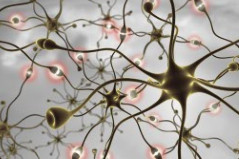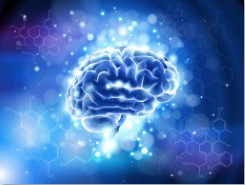Author: DynamicBrain Inc.
Publication: Monthly Newsletter
Published Date: August 20, 2020
By training our brains to be fine-tuned for hearing, we can precisely capture every nuance of Pavarotti singing the Una furtiva lacrima aria. When our brains process sound information quickly and accurately, we hear well and can follow the iterations and variations on a musical tune, listening to how it evolves, fragments, and spirals upward. So, whether you are a music lover or simply want to improve your hearing and be able to follow a conversation in a crowded place, login to BrainHQ now and train on our research-based auditory system exercises!
If you still don’t have full access to BrainHQ, you can subscribe here.

Kind regards, Frieda Fanni
President
DynamicBrain Inc.
DynamicBrain Inc. is the Canadian partner of Posit Science Corporation providing brain fitness program BrainHQ in English and French.
|
 |
 Alzheimer’s disease in women
Alzheimer’s disease in women
Did you know that women are more affected by Alzheimer’s disease than men? Scientists are unsure why women are more likely to get the disease. Recent studies have focused on sex-based differences in how the brain metabolizes sugar to identify a likely culprit and potential therapeutic target. The research has uncovered significant differences in the brain’s responses to Alzheimer’s, which may explain why there are sex-related differences. Further studies hope to identify precise targets for therapy.
Learn more
here.
 Body weight and brain function
Body weight and brain function
We all know that physical, mental, and cognitive health are intertwined. A largescale study has revealed surprising ways that the brain responds to our bodies - as body weight goes up, brain activity and blood flow go down. Being overweight or obese can impact brain activity and increases the risk of Alzheimer’s disease and other brain-related conditions. Looking after one’s physical health can have a positive impact on one’s mental and cognitive health, and vice versa. Going outside for a nice walk is a good idea, and don’t forget to use BrainHQ!
Read more about this study
here.
 Right under your nose
Right under your nose
Researchers have identified a potential therapeutic target in Parkinson’s disease, and the answer was right under our noses. In a recent Sino-American study, researchers have discovered how inhaled bacterial toxins may help in the initiation and propagation of Parkinson’s-related molecular changes in the brain. Loss of smell is a common early symptom of Parkinson’s disease. Interestingly, inhaling bacterial toxins can cause inflammation in the brain’s region associated with smell and may be linked to Parkinson’s.
To find out more, click
here.